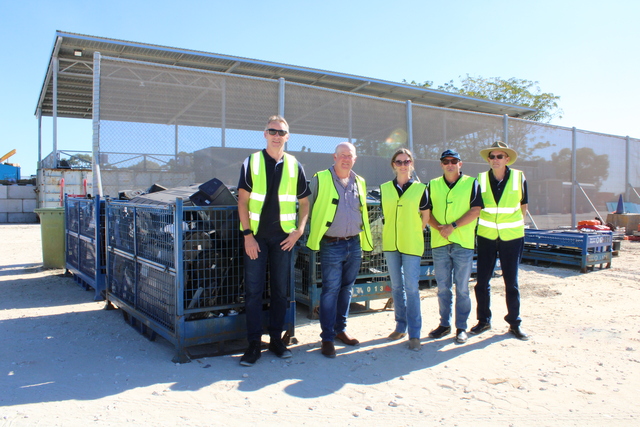The Good Oil by Rod Brown *
The Chongqing Municipality is two hours flying time north west of Hong Kong. It serves 30 million citizens – and is thus the world’s largest municipal government. The city of Chongqing, with a population of 6.5 million, was the home of the national government during World War II. However Chongqing is significant for another reason, namely that it provides a litmus test of how regional China will cope with its accession to World Trade Organisation arrangements.
Accordingly, in early May an OECD sponsored delegation participated in a Regional Development Forum with the Chongqing Municipal Government and the Ministry of Foreign Trade and Economic Cooperation (MOFTEC). The OECD delegation was led by Bernard Hugonnier, coincidentally the keynote speaker at the Australian Government’s Regional Summit in 1999.
While it was a preliminary exchange of views, the Chinese are keen to begin coping with the conundrum, that while WTO accession will open up vast global market and foreign direct investment (FDI) opportunities, it will also lead to increased international competition within the regional economies of China. This in turn will involve major adjustments in industrial structures and trading relationships, since regional China’s exposure to global business has been relatively limited to date.
The Chongqing authorities are also keen not to lose ground to the coastal zones of Guangdong, Hong Kong, Shanghai and so forth which are already sucking in huge amounts of foreign investment and generating higher productivity and export growth.
Chongqing wants to add value to its resources, build high tech industry, strengthen R&D commercialisation, facilitate the growth of small-medium enterprises (SMEs) and introduce governance structures as they move away from a planned economy.
They place great importance on FDI by Fortune 500 companies because they operate on a scale that matches their domestic market requirements, and can drive cost efficiencies and provide an entree to third markets.
What has this got to do with Australia? Well, there are real opportunities to strengthen our economic and social relations with Chongqing, and similar regions in China.
These opportunities derive from the specific needs acknowledged by the Chongqing authorities attending the Forum, as follows.
- Formulating appropriate industry policies, including the identification of industries to drive their regional economy.
- Establishing government agencies with skills in SME development.
- Addressing the financing needs of their SMEs, e.g. credit guarantee agencies, venture capital bodies.
- Nurturing entrepreneurs, innovators and talented people.
- Upgrading the social security system e.g. how to secure incomes for workers displaced by the WTO-induced adjustments.
- Improving the education system to benefit technicians, professionals and managers of SMEs.
- Ensuring appropriate governance structures are in place, such as intellectual property, competition law, transfer pricing, corruption, policing systems, personnel systems and so forth.
As one of seven external experts invited to the Forum, I suggested that, strange as it might seem, Australia could assist Chongqing in many of the above areas given that we have adjusted to significant cuts in import tariffs, and have well developed governance structures in place. I also pointed out that Australia, like our hosts, needs to build stronger supply chains to the world market, add value to our raw materials and better commercialise our research, while also aligning with the right sorts of multinationals.
I explained that one of the challenges for China will be to differentiate between the good, bad and ugly multinationals – an area in which Australia has some ‘bruises and lipstick’ to show.
The Forum also addressed the role of networks and clusters to marshall SMEs as a means of winning business opportunities and addressing constraints. Mme Pommier of DATAR (the French Government’s planning agency) explained the role of industry clusters in improving productivity, and fostering innovation and SME start ups. She suggested that a good starting point was to identify the common issues and establish internal and external identities, and that some interchanges with French clusters would be a good means of transferring knowledge.
The Forum was in general agreement that progress in many of the above areas will require a long term commitment of major proportions, given the language difficulties, different business cultures, and the significant two way education and training requirements. Between the formal sessions, we discussed ideas on how western nations might cooperate to assist our Chongqing friends.
One suggestion we tossed around is whether three or four western nations could share the costs of a significant aid project for Chongqing, and that it be replicated across other regions. Another suggestion, only informal at this stage, was to entice some of the sons and daughters of Chongqing now living in the west to return to participate in workshops, rather than just leaving it to consultants and government officials.
A further idea was to establish an alliance of Pacific Rim universities with strong China credentials, such as in Australia, Singapore and Canada, to become involved, along with their Chinese alumni.
The size and breadth of the agendas suggest that to do it properly, a coalition of interests, comprising Local Government, employment agencies, universities, SMEs and legal firms, is required to link up with municipalities such as Chongqing. Accordingly, if you know of a person or organisation with affiliations in Chongqing, they might contact us for a chat.
* Rod Brown’s Canberra based consultancy group, Australian Project Developments Pty Ltd, specialises in industry/regional development and government liaison. For further information telephone (02) 6231 7261 or email apd@orac.net.au







